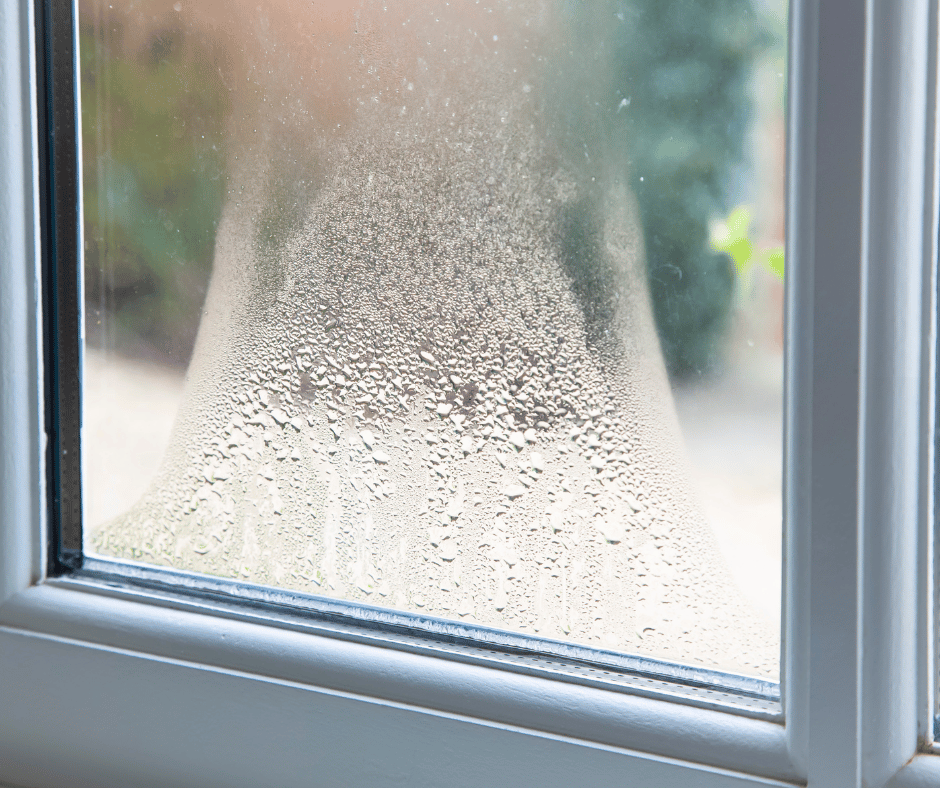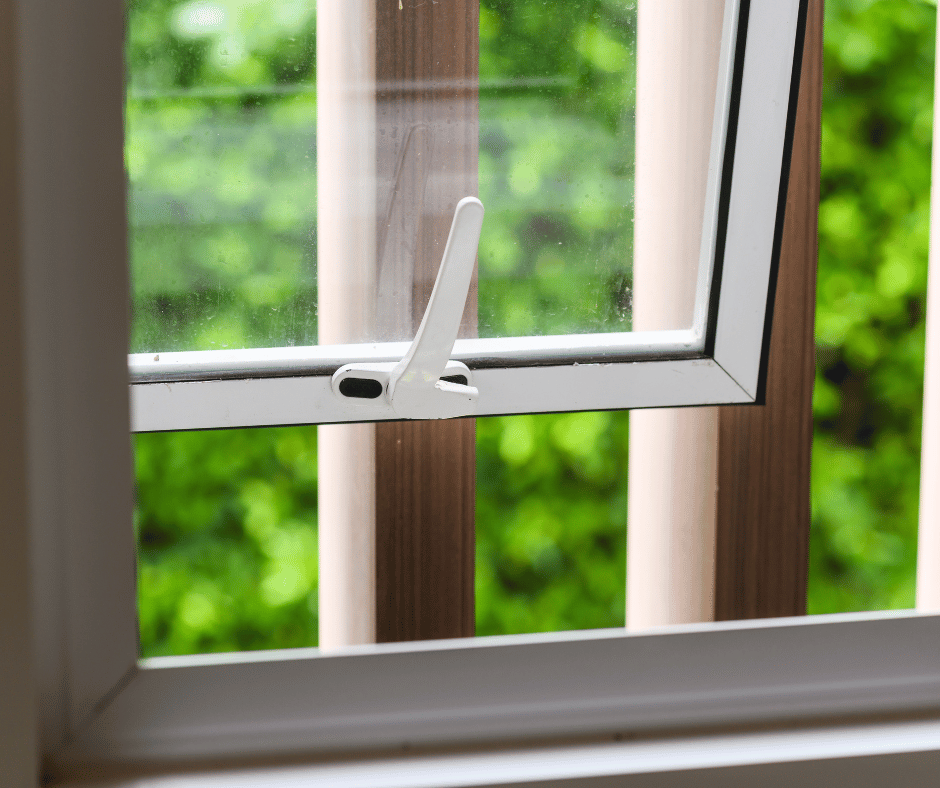A front door says a lot about your style and personality and creates a first impression to any visitors or guests you have. Outside of design and aesthetics, picking the right front door is also important to help secure your house, and keep your home warm in an energy-efficient way.
Choosing the right front door for your home is an important decision. Something we get asked a lot at Celestial is which is best, a UPVC or a composite door.
Both have their benefits, drawbacks and use cases. So the “best” option will depend on your preferences, requirements, and budget. So, whether you’re looking at uPVC vs composite doors or deciding if you want a wooden front door, we have you covered. By the end of this article, you’ll be in a position to make the best choice for the aesthetics, energy efficiency and security of your home.
What is a Composite Door?
A composite door is made from many different materials. The exact makeup depends on the manufacturer; however, typically, they will include steel, wood and foam-filled cores. They Are then coated in durable UPVC and this is what gives you the option of gorgeous colours and longevity. These materials together create an incredibly energy-efficient, incredibly strong and secure door. You can learn more about “what is a composite door” in our dedicated blog post.
What is a UPVC Door?
uPVC doors are crafted using a combination of un-plasticised polyvinyl chloride (uPVC) and a steel frame. This composite structure offers notable advantages in terms of strength, security, and insulation.
- Materials: The outer layer of uPVC provides resistance to weathering, making it ideal for external applications. The steel frame adds structural integrity, contributing to the door’s overall robustness.
- Sealed Unit: The combination of uPVC and steel creates a tightly sealed unit, minimizing air leakage and enhancing energy efficiency. This design feature helps to maintain a consistent indoor temperature and reduces heat loss during colder months.
- Durability: uPVC doors are renowned for their durability and longevity. The materials used are resistant to rot, corrosion, and insect damage, ensuring that the door remains functional and aesthetically pleasing for many years.
- Low Maintenance: Unlike wooden doors that may require regular painting or staining, uPVC doors are virtually maintenance-free. They can be easily cleaned with soap and water, making them a convenient option for homeowners with busy lifestyles.
- Security: The steel frame provides added security, making uPVC doors a popular choice for homeowners seeking peace of mind. The robust construction makes it difficult for intruders to force entry, enhancing the overall security of the property. At Celestial, we also use a high security 10 point locking system as standard so we can ensure every door we install keeps your home safe.
- Versatility: uPVC doors are available in a wide range of styles, designs, and finishes to suit different architectural preferences and personal tastes. This versatility allows homeowners to find a door that complements the aesthetic of their property.
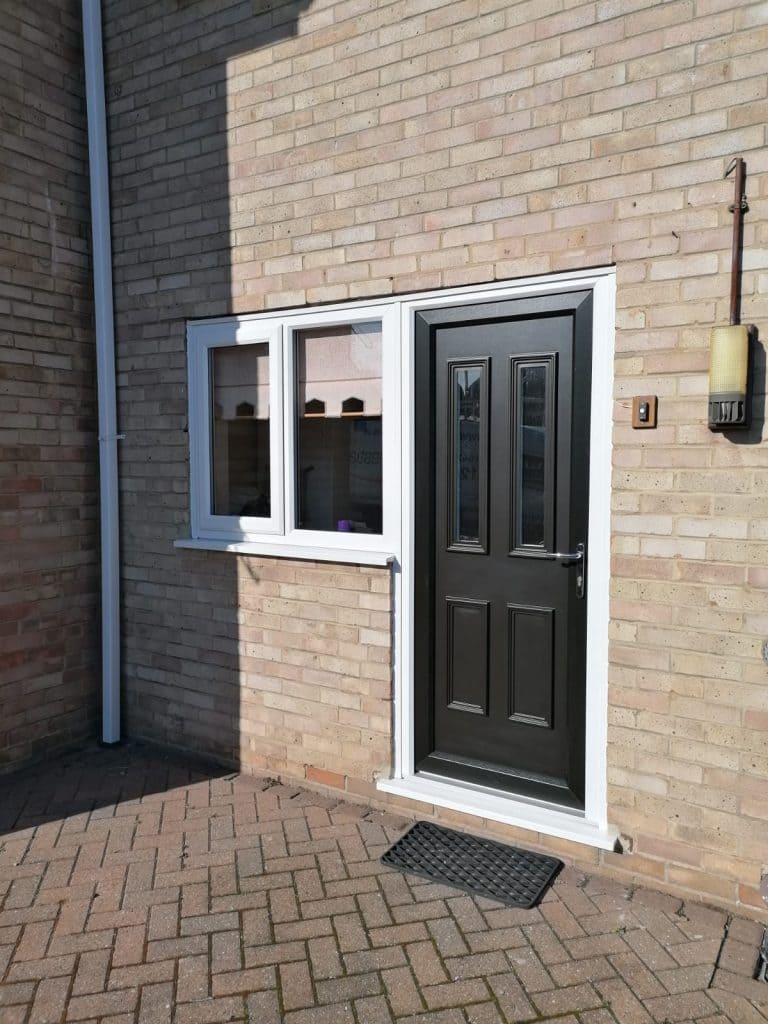
Cost Comparison
Now we know how each door is made, what is the price difference between uPVC and composite doors? Like for like, composite doors are more expensive than uPVC. The price difference between the two can be as much as 60%.
However, the reason for the price difference in composite vs uPVC doors is simply down to how both doors are manufactured and the materials used to create each door. As composite doors use more materials and a more complex manufacturing process, their cost is much higher than that of uPVC options.
Whilst a composite door will cost you more to buy – it’s important to consider the long term benefits they provide to help you make an informed decision. Read on as we explain what these are.
Durability Factor
When it comes to durability, both doors are incredibly durable. The materials used for both doors have been chosen for their ability to provide ongoing protection with very little maintenance.
UPVC doors will have a lifespan of around 20 to 25 years. This can be shortened or prolonged due to how well you care for it, much like anything, but typically, you can expect your door to give you at least 20 years before it needs replacing when well cared for.
Composite doors, however, can have a lifespan of around 30 years. Again, how you care for it will dictate how long your composite door will last for. But with the proper maintenance, you can expect it to last you around the 30-year mark.
Energy Efficiency
If you’re looking for a front door that boasts increased energy efficiency when comparing composite vs uPVC doors, composite doors take the edge over uPVC doors. Both doors will help you reduce the energy you use in your home, but uPVC doors don’t perform as well as composite doors.
The reason composite doors are more energy efficient than uPVC doors is down to the composition as they are twice as thick and filled, meaning there are more barriers to block heat escaping and the cold air entering your home. If you’re concerned about the energy rating of your home and, indeed, your doors, composite doors tend to be A or A+ rated, meaning they hold a higher efficiency rating than other doors, making them a better choice.
Maintenance Requirements
Honestly, the maintenance of a composite door vs uPVC is minimal. Both doors are highly durable and easy to maintain, so when it comes to how you care for them, there isn’t much between them.
Both types of doors will need to be cleaned on a regular basis. Generally, a damp cloth and a mild detergent will help you to keep your door clean. The only other attention you need to pay to your doors is to check that the locks still work as you need them to and that there is no damage to the hinges or seals.
You can get uPVC touch-up kits to help you repair any damage to your uPVC front door, and composite doors will benefit from a fresh coat of paint or sealant to protect them from the elements on a yearly basis.
Something to bear in mind when checking your doors for damage or cleaning them is that composite doors tend to make more noise than uPVC doors simply due to the materials expanding and contracting in different weather conditions. This might sound like there is an issue, but this is completely normal and should be something you expect.
Style and Design Options
The beauty of uPVC and composite doors is that they are available in many different sizes, styles and colours. You can be sure to find the right design for your home; whether you opt for a more natural wood effect type door, a classic white front door, or you want something more modern and opt for a bold colour to make a statement, it’s entirely up to you.
You can customise the colour, style, location and size of the windows and even the handle and lock of the door; you can even put smart home locks on your door. The only difference, and it’s a minor one, is that uPVC doors have slightly fewer colours than composite, and that’s it. If you’re not sure what your options are, talk to your manufacturer to see what is available in the type of door you choose.
We have a vast time of time-served professionals at Celestial meaning we can craft your perfect composite door, deliver and fit it to your exact requirements and size. No matter what your vision is – we can bring it to life.
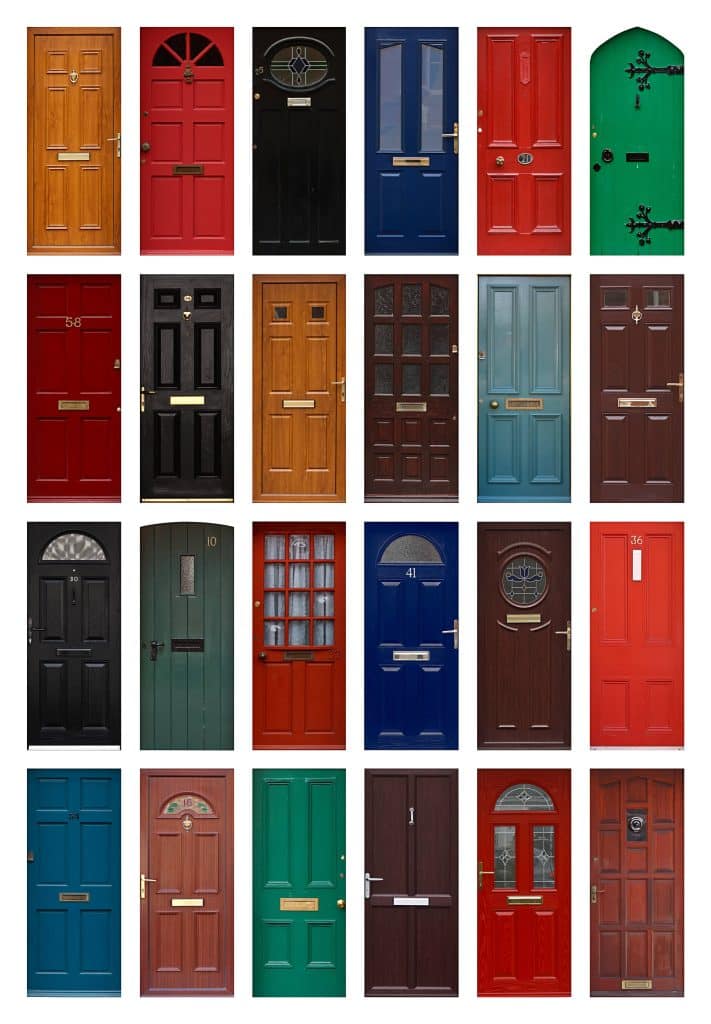
Security Features
When it comes to security, both uPVC doors and composite doors are much more secure than wooden doors. However, what comes out on top between uPVC vs composite doors for security? Hands down, a composite door is much more secure than a uPVC door.
Don’t be fooled; uPVC doors, while cheaper than composite doors, are still secure. Their strong metal frame and 10-point locks offer homeowners plenty of security.
Composite doors, simply because of their construction and thick-filled core, are a more secure option. It will take a very determined burglar to break down a composite door, and its filled internal structure will help protect your property much more than a uPVC door.
Environmental Impact
Compared to uPVC doors, composite doors are more environmentally friendly. Not only do they last longer, meaning they won’t end up in landfills or waste centres for a while longer than other front-door options, but the materials used to make composite doors are also more environmentally friendly than their uPVC counterparts.
When you add this to the thermal efficiency of composite doors, it makes them the front runner for people wanting to choose an energy-efficient door that is also more eco-friendly.
Installation Process
The installation process for composite vs uPVC doors is pretty similar. We’ll fit your door for you so you can be confident that your front door is installed correctly, is safe and secure, and gives you the energy efficiency you expect from your door.
A uPVC door can be fitted in around 4 hours and requires two engineers to ensure the door is fitted correctly and meets all regulations. A professional should be able to install your new composite front door in around 3 to 6 hours, but this could be longer, depending on the complexity of the project.
In both cases, the installation process involves removing the old door and preparing the frame to see if it is still suitable or if you need it replaced to fit your new door. The door will then be aligned with the frame to get the right fit, and any adjustments will be made if required. The last step involves adding all the hardware needed for the door.
However, you can fit both uPVC and composite doors yourself if you are competent to complete the installation process.
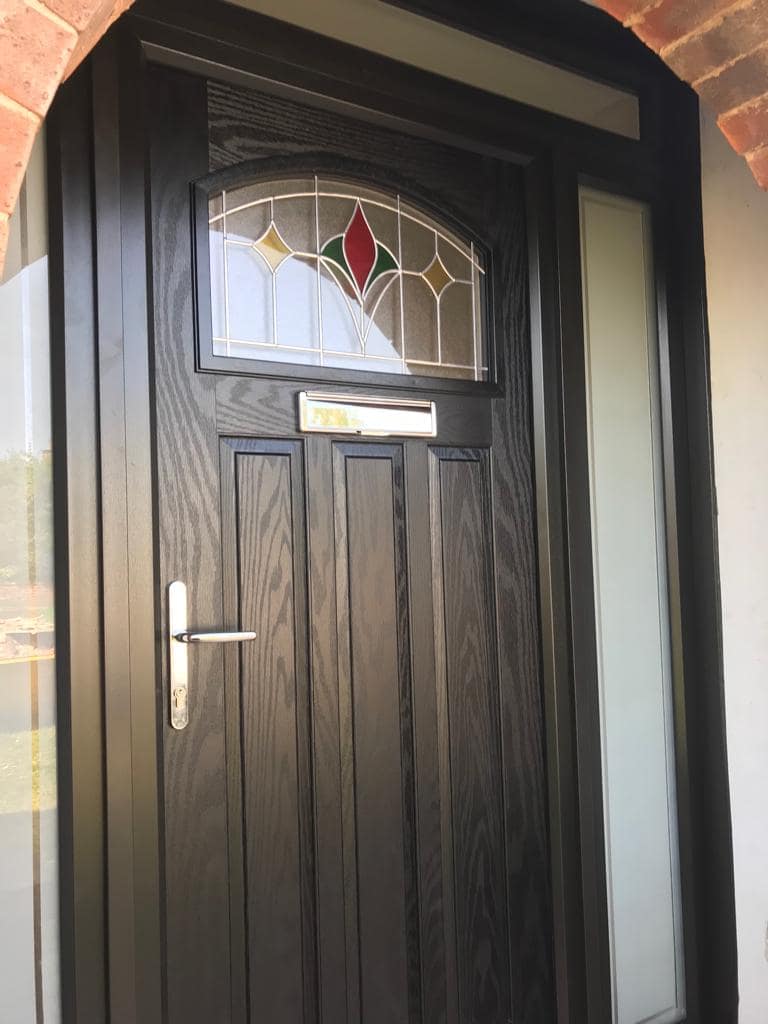
Composite Doors vs UPVC Doors – Which is best?
A composite vs uPVC door: what is the best? While both options are excellent for a front door for your home, both have pros and cons. Most notably, a composite door is much more expensive upfront than a uPVC door, and for many people, this is an influencing factor.
A uPVC door is energy efficient, and thanks to its steel frame and multi-point locking system, it can offer your home added security and be perfectly customised to fit your home. It is also easier to install than composite doors and requires less maintenance during its lifespan.
That being said, while the more expensive option, a composite door offers more benefits for homes. A new composite door is much more eco-friendly and energy efficient, and its multi-layered core gives you added security from intruders.
Composite doors last longer than uPVC doors and are often available in more colours and designs than uPVC doors too. They can also be upgraded to include smart locks and additional features. But one downside is that they make more noise than uPVC doors due to the materials expanding and contracting in different weather and temperatures. So that’s something to consider when making your final decision.
Our Verdict – Composite Doors
If you want to learn more about how a composite door can benefit your home or talk through the differences between a uPVC door and a composite one, then you can contact us today, and we will be happy to answer any queries you have.
If you’re wondering what styling and design options are available, get in touch with us today!


